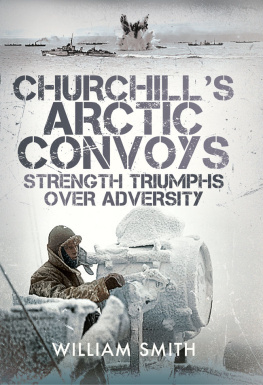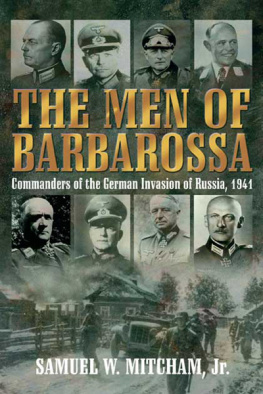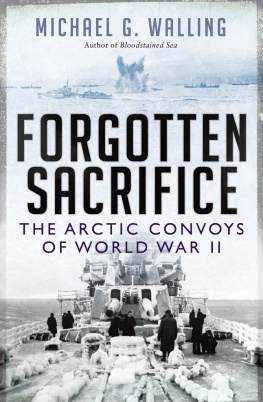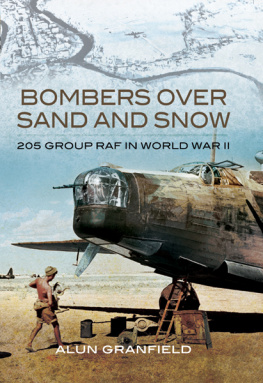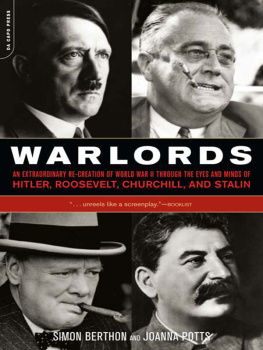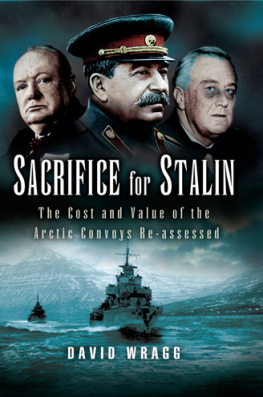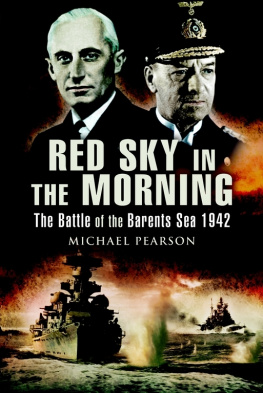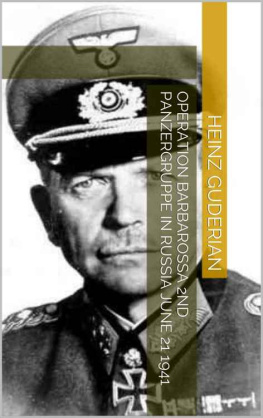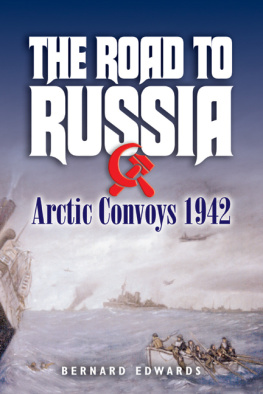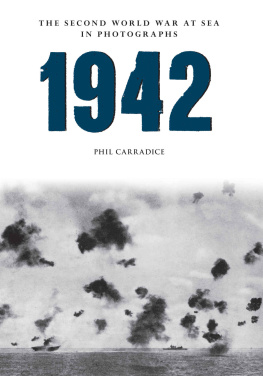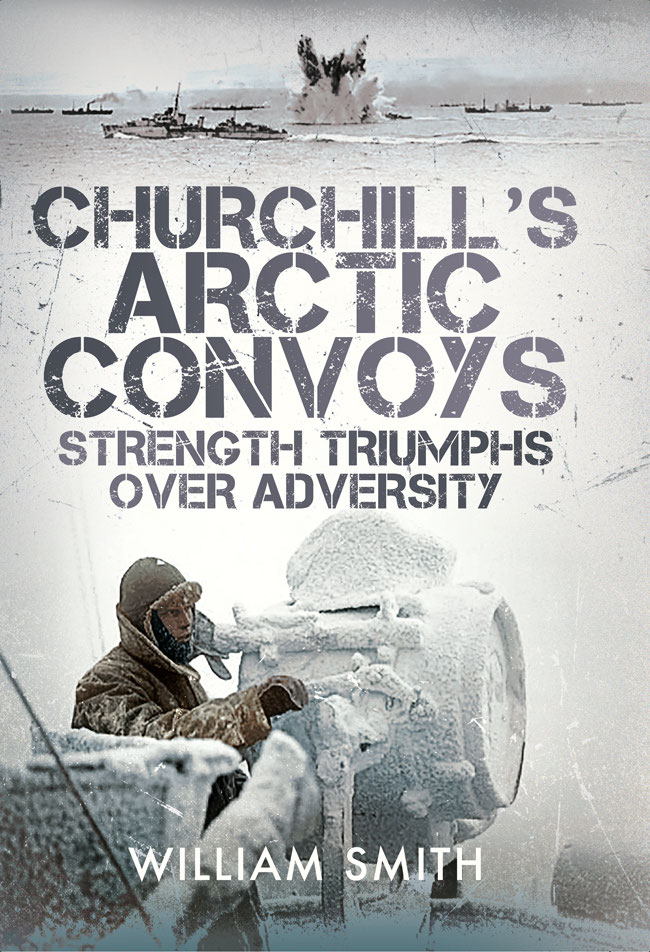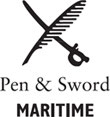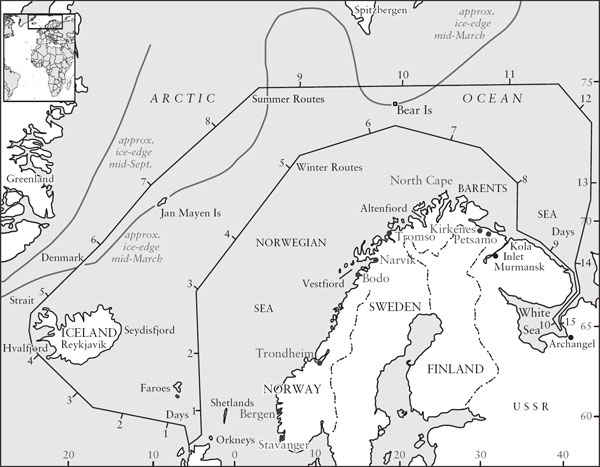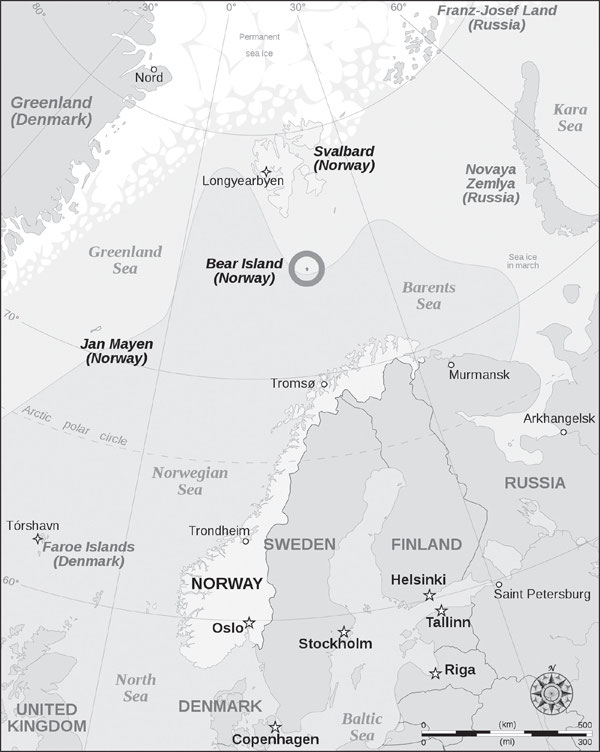Churchills Arctic Convoys
Churchills Arctic Convoys
Strength Triumphs Over Adversity
William Smith
First published in Great Britain in 2022 by
Pen & Sword Maritime
An imprint of Pen & Sword Books Ltd
Yorkshire Philadelphia
Copyright William Smith 2022
ISBN 978 1 39907 229 8
eISBN 978 1 39907 230 4
Mobi ISBN 978 1 39907 230 4
The right of William Smith to be identified as Author of this work has been asserted by him in accordance with the Copyright, Designs and Patents Act 1988.
A CIP catalogue record for this book is available from the British Library.
All rights reserved. No part of this book may be reproduced or transmitted in any form or by any means, electronic or mechanical including photocopying, recording or by any information storage and retrieval system, without permission from the Publisher in writing.
Pen & Sword Books Limited incorporates the imprints of Atlas, Archaeology, Aviation, Discovery, Family History, Fiction, History, Maritime, Military, Military Classics, Politics, Select, Transport, True Crime, Air World, Frontline Publishing, Leo Cooper, Remember When, Seaforth Publishing, The Praetorian Press, Wharncliffe Local History, Wharncliffe Transport, Wharncliffe True Crime and White Owl.
For a complete list of Pen & Sword titles please contact
PEN & SWORD BOOKS LIMITED
47 Church Street, Barnsley, South Yorkshire, S70 2AS, England
E-mail: enquiries@pen-and-sword.co.uk
Website: www.pen-and-sword.co.uk
Or
PEN AND SWORD BOOKS
1950 Lawrence Rd, Havertown, PA 19083, USA
E-mail: Uspen-and-sword@casematepublishers.com
Website: www.penandswordbooks.com
Contents
Map 1. Arctic Convoy Routes.
Map 2. Location of Bear Island.
Chapter 1
Introduction
Germany invades Russia Operation Barbarossa
At 4 oclock on the morning of 22 June 1941, Hitler launched Operation Barbarossa, the German attack on and invasion of Russia. Prime Minister Winston Churchill was told of the invasion at 08.00 that morning and that evening he made a broadcast to the nation. At the conclusion of his speech, he declared it would be Britains policy to aid the Russians in their fight against Germany.
Following a discussion between the Secretary of State for Foreign Affairs and the Soviet Ambassador concerning the supply of war materials, Churchill telegraphed Stalin on 25 June:
War Cabinet has decided (although it would seriously deplete British fighter resources) to send Russia as soon as possible two hundred Tomahawk fighter aeroplanes.
Churchill also promised several million pairs of ankle boots, large quantities of rubber, tin, wool and woollen clothes, jute, lead and shellac (these shipped in August with the first convoy, Dervish). He added, All your other requirements for raw materials are receiving careful consideration. Where supplies are impossible or limited here, we are discussing matters with the USA. Details would of course be communicated through the usual official channels.
In a further telegram on 31 July, Churchill advised Stalin that following his personal intervention, arrangements were now complete for the despatch of ten thousand tons of rubber from this country to one of his northern ports. He added, The British ships carrying this rubber and certain other supplies will be loaded within a week, or at most ten days, and sail to one of your northern ports as soon as the Admiralty can arrange a convoy.
As Churchill later wrote in The Second World War (vol. 3, p. 461):
All of this placed a new burden on the Royal Navy. The need to aid Russia focussed attention on the sea routes to Archangel and Murmansk. On August 12th the 1st PQ convoy of six ships for Russia sailed from Liverpool via Iceland to Archangel. The plan thereafter was to run convoys to North Russia regularly once or twice a month. Initially they were not attacked by the Germans. When Archangel was ice bound the convoys sailed to Murmansk.
Prime Minister Churchill met President Roosevelt at Placentia Bay (Newfoundland) between 9 and 12 August 1941 to discuss the implications of the Soviet Unions entry into the war against Germany for United States and British foreign policy and the war effort. During the conference, Harry Hopkins, the presidents emissary recently returned from Moscow, briefed them on Russian requirements and discussed the supply of arms and materiel to the Soviet Union. Following this Churchill and Roosevelt pledged the supply of aid to Russia, and on 15 August sent a joint letter to Stalin. They proposed a conference in Moscow to discuss long-term arrangements as to how future Russian requirements might be met and promised in the meantime to continue sending supplies and materiel as quickly as possible.
Transporting these supplies by sea to North Russia in convoys of merchant ships, escorted by Royal Navy warships, would prove to be one of the most challenging and dangerous commitments undertaken by both the merchant navy and (particularly) the Royal Navy during the Second World War, as the route took the convoys close to the coast of German-occupied Norway and within range of surface ship, U-boat and aircraft attack. By far the shortest and quickest route from the American east coast and from Great Britain to Russia ran across the North Atlantic, via Iceland, around the North Cape of Norway, and across the Barents Sea to Murmansk, or on through the White Sea to Archangel. It took an average of ten days for a convoy to sail from Iceland to Murmansk and fourteen to Archangel. Murmansk was ice-free all year around, whilst Archangel was iced in for part of the year. The advantages of the northern route in terms of short transit distances and closeness to the Russian front-line were offset by the extreme weather conditions and by the proximity of the convoy routes to the German surface ship, U-boat, and air bases along the Norwegian coast, established after the German invasion and occupation of Norway in 1940, making it potentially the most dangerous of all the supply routes to Russia.
Before the Moscow Conference was held, in late September 1941, Churchill had telegraphed Stalin on 4 September promising to try to let him know beforehand the numbers of tanks, aircraft and other supplies the US and UK could send each month. The conference concluded on 2 October with the signing of a Protocol providing for material aid to Russia over the period up to 30 June 1942, listing those items it had been agreed would be supplied. (The Protocol would subsequently be renewed each year until 1944.) Although Churchill then (in his message of 6 October) promised Stalin, We intend to run a continuous cycle of convoys leaving every ten days this appears to have been one of his more grandiloquent gestures, failing to anticipate the practical difficulties and dangers associated with such a venture. In the event, despite post-war assertions recorded in Hansard that the work was never interrupted, the convoy programme did not run continuously, or at regular intervals during the war the frequency and size of each convoy was determined by wider political and military constraints, including competing strategic military objectives and strength of the German opposition faced at the time. So the convoys were sent in a number of distinct phases or cycles, mirroring the effects of these constraints. The following chapters describe each of these phases as the patterns of activity developed and external factors determined their duration.

